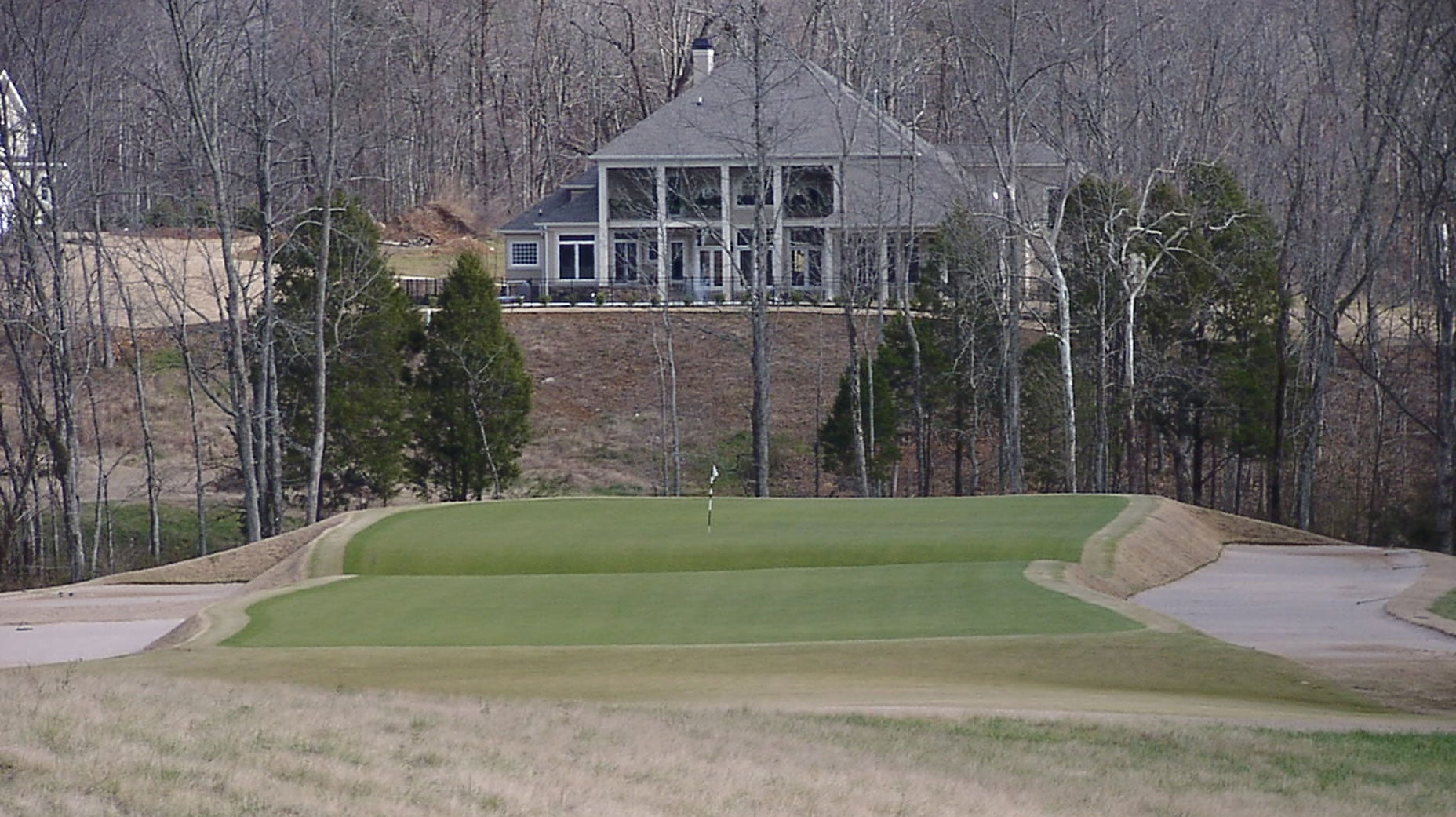For every great course that made GOLF’s 2020-21 ranking of the Top 100 Courses in the U.S., dozens of more must-plays were left on the outside looking in — including at least a handful in your home state. Some of these designs just missed out on a Top 100 nomination, others finished deeper down the ranking, but all are worthy of your time. To shed light on the best courses in every state, we broke out the full results of our Top 100 Courses polling into state-by-state lists. Here’s a closer look at Tennessee.
Tennessee golf by the numbers:
Number of courses and U.S. rank: 274 (23)*
Number of golfers per capita rank: 40*
Average public-course greens fees: $ out of $$$*
Average daily temp and rank: 57.6 (14)
Annual precipitation and rank: 54.2 in. (6)
*Source: National Golf Foundation
Best Tennessee golf courses (2020/2021)
1. Honors Course (Ooltewah) [1]
The joy of a well-run club can’t be overstated, and The Honors also enjoys one of the country’s standout pairings of head professional and greenkeeper. Its 1983 Pete Dye course keeps getting better and better. Situated at the foot of White Oak Mountain in eastern Tennessee, the course has long been a sanctuary for wildlife and a think tank on agronomy and different grasses. Cocooned in nature, the player revels in the rustic playing environment and appreciates the enhanced attention that has been paid to the firming of the playing surfaces in recent years.
2. Holston Hills (Knoxville)
3. Golf Club of Tennessee (Kingston Springs)
4. Memphis (Memphis)
5. Sweetens Cove (9-holer) (South Pittsburg) [P]
Book a tee time at Sweetens Cove.

6. Spring Creek Ranch (Collierville)
7. Black Creek (Chattanooga)
8. Ridgefields (Kingsport)
9. Cherokee (Knoxville)
10. Island Pointe (Kodak) [P]
Book a tee time at Island Pointe.
SYMBOL GUIDE
1 = GOLF Top 100 Course in the U.S.
2 = GOLF Top 100 Course in the World
3 = GOLF Top 100 Resort
P = Resort/public golf course
Ed. note: Some courses were omitted from our rankings because they did not receive enough votes.
Course spotlight: Black Creek Club (Chattanooga), ranked 7th in Tennessee. The most ambitious modern attempt at a Macdonald/Raynor template course that I’ve played. Those holes work quite brilliantly, but the original holes are nearly as compelling thanks to a pretty great property. A must-play for anyone interested in template holes — but also pretty great even if you have no idea what those are. — GOLF Top 100 Course Rater

How we rank America’s best golf courses
For the newly released 2020-21 U.S. list, each panelist was provided a list of 489 courses. Beside that list of courses were 11 “buckets,” or groupings. If our panelists considered a course to be among the top three in the country, they ticked that box. If they believed the course to be among Nos. 4-10 in the U.S., they checked that box, followed by 11-25, 26-50, and so on.
Panelists were also free to write in courses that they felt should have been included on the ballot (we had fewer than a handful of such additions in the U.S. vote).
Points were assigned to each bucket; to arrive at an average score for each course, we divide its aggregate score by the number of votes. From those point tallies, the courses are then ranked accordingly. It is an intentionally simple and straightforward process. Why? Because it invariably produces results that are widely lauded. Like the game itself, there’s no need to unnecessarily overcomplicate things.
For much more on how we rate courses, click or tap here.
Meet our course raters
We empower and hold accountable a group of 97 well-traveled — and well-connected — golfers/aficionados, each capable of expressing their own sense of design excellence at the highest level. The group is seasoned and experienced — we look for raters who know what’s out there, what’s changing and what’s coming down the pike. And from judging posts across four continents, our panelists are positioned to place courses from different regions around the globe into proper context, one of the main reasons GOLF’s Top 100 Courses rankings are the most esteemed in the game.
Other ranking outlets employ thousands of raters. Our less-is-more approach creates a more meaningful and thoughtful list. Think about it: When you plan a golf trip, do you call every golfer you know for their take? No. You contact a handful of people whose opinions you value most.
Meet our full crew of panelists here.










